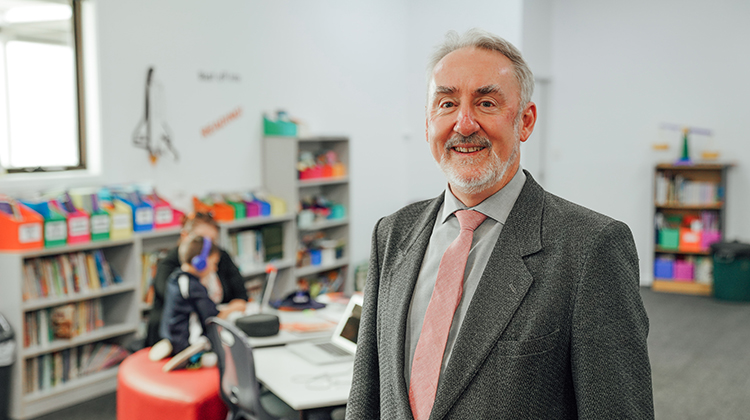Home Schooling – What of the Future?

Home schooling has grown in significant numbers in all Australian states and territories during the COVID-19 pandemic years. But the question must be asked Will that growth be sustained post-COVID?
At Australian Christian Home Schooling (ACHS) I’ve seen a 62% growth in student numbers over the past three years, which is in line with national trends.
Government-mandated COVID lockdowns and remote-learning restrictions forced most Australian students to engage in their school lessons at home. This learning-at-home requirement gave parents a window into their children’s educational levels and what they were learning at school. It also gave them a forced taste of home-based learning.
This exposure to their children’s school-based learning-at-home provided push and pull factors which motivated some parents to turn to home schooling. The push factors were negative aspects that parents discovered in their children’s schooling experiences that drove some to remove their children from in-person school. The pull factors emerged when parents realised the benefits of home-based learning and they decided to try bona fide home schooling for themselves.
Both the push and pull factors have contributed to the swelling of home schooling numbers around the nation.
My recent research into why parents have chosen to home school their children has shone a light onto these push and pull factors.
Parents in this study described their concerns about government ideologies and policies in schools such as “critical race theory and leftist-woke agenda”. They also cited perceived anti-family values, poor quality education levels, concern over COVID-19 mandated requirements, and their children’s physical and social safety as distinct push factors that motivated them to remove their children from traditional schooling.
Conversely, these parents also indicated that their home environments provided safe and stress-free educational settings which promoted positive learning experiences and thus were attractive pull factors motivating them to bring their children home for their formal education. One parent, new to home schooling stated, “I have seen great advances in my children’s education in the last 6 months of home schooling.”
But what of the future for home schooling?
Given that the COVID-19 restrictions have been withdrawn, I expect that there will be families who were worried about those conditions, who will re-enrol their children in traditional school.
However, I also believe that there are many families that have chosen home schooling during the COVID-19 lockdown period that have discovered the benefits of home schooling and who will continue with their children’s home schooling experience.
Overall, I believe that because some families have used home schooling as a temporary measure during the lockdowns, there will be a reduction of home schooled students in 2023 compared to this year. However, because many who were new to home schooling have discovered its many benefits, I expect that the net number of home schooled students in 2023 will be greater than the number of students at the start of the pandemic.
There will also be new families who will commence home schooling in 2023 irrespective of past COVID conditions. This is normal for the start of any academic year.
The growth or reduction trends in numbers of home schooled students will become apparent in the first quarter of 2023 as the Australian educational landscape settles. However, the true figures of home schooled numbers will never be calculated, as it is well known that many home schooling parents choose to not register with their state and territory education departments. So, the real numbers of home educated children will remain unknown.
Since the European colonisation of Australia in 1788, home schooling has been a significant, minority feature of Australian education. At times, for some, it has been the only educational option for families. Nowadays, when there is an abundance of educational choice, home schooling provides a viable, bona fide educational option and it is clearly experiencing a strong resurgence among Australian families.
For parents interested in home schooling you can find Australian Christian Home Schooling on www.achs.edu.au
Dr Terry Harding
Dr Harding is one of the pioneers of both home schooling and non-government distance education in Australia. He has been influential in the development of both forms of education and has been the manager Australian Christian Home Schooling for 28 years. Dr Harding continues to inform both state and federal governments concerning home schooling and non-government distance education, as they develop policy for both of these modes of education.